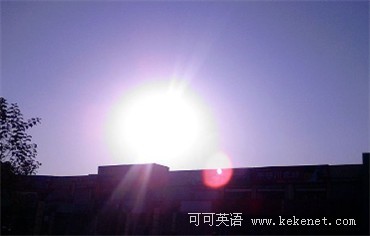
Glass does block out the sun's UVB rays, but about 50 percent of UVA rays, associated with burning and ageing, do get through. Leading dermatologists and photobiologists warn that daily exposure to ultraviolet rays means the skin can age more than twice as quickly as skin that is protected. There will be more lines and wrinkles, and these will be much deeper around the eyes, nose and mouth.
玻璃確實能阻擋太陽光中的中波紫外線,但卻無法抵擋50%的長波紫外線(正是這種紫外線催生了燃燒和老齡化)穿堂入室。著名皮膚病學家以及光生物學家警告人們,經常暴露于紫外線下意味著皮膚的老化速度比被保護時要快兩倍。屆時臉上會有更多溝壑褶皺,而眼睛、鼻子和嘴巴周圍的紋路會深得多。
A team at University College Hospital, Besancon, in France, conducted the first study on how sections of the face age at different rates related to sun exposure. They demonstrated that a woman office worker or regular driver will age more quickly on the side where the skin faces the sun and heat - even through glass.
法國貝桑松University College Hospital的一個研究小組日前進行了首例關于不同程度臉部老化和日曬關系的研究。研究表明女性文職人員和司機面對太陽和熱量的臉頰比另一半臉頰老化得快——即使是通過玻璃。
Another study, by skin experts at Boots, found even a few hours sitting in a car in April resulted in skin damage linked to ageing. Signs can include dark spots, wrinkles, droopy and leathery skin and broken blood vessels.
另一項由皮膚專家在英國布茨進行的研究表明,四月份在車里坐幾個小時就會導致和老化相關的皮膚損傷。老化跡象有:色斑、皺紋、皮膚下垂、橘子皮皮膚以及毛細血管破裂。


















